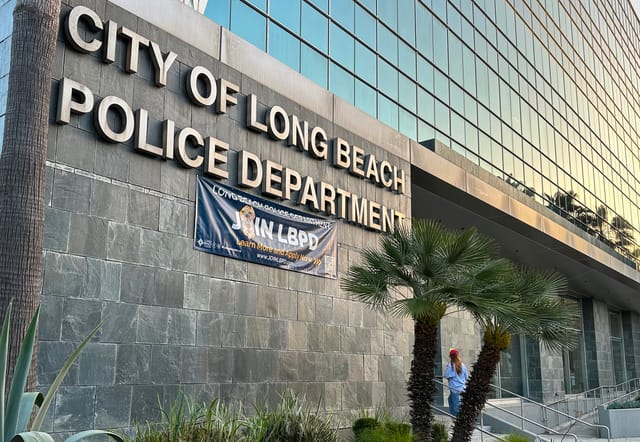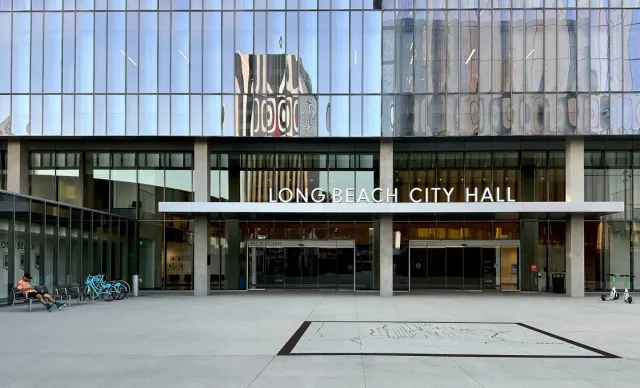‘100% mission success!’ Rocket Lab celebrates 60th Electron rocket launch
The Long Beach-based company has now delivered 210 satellites to space.
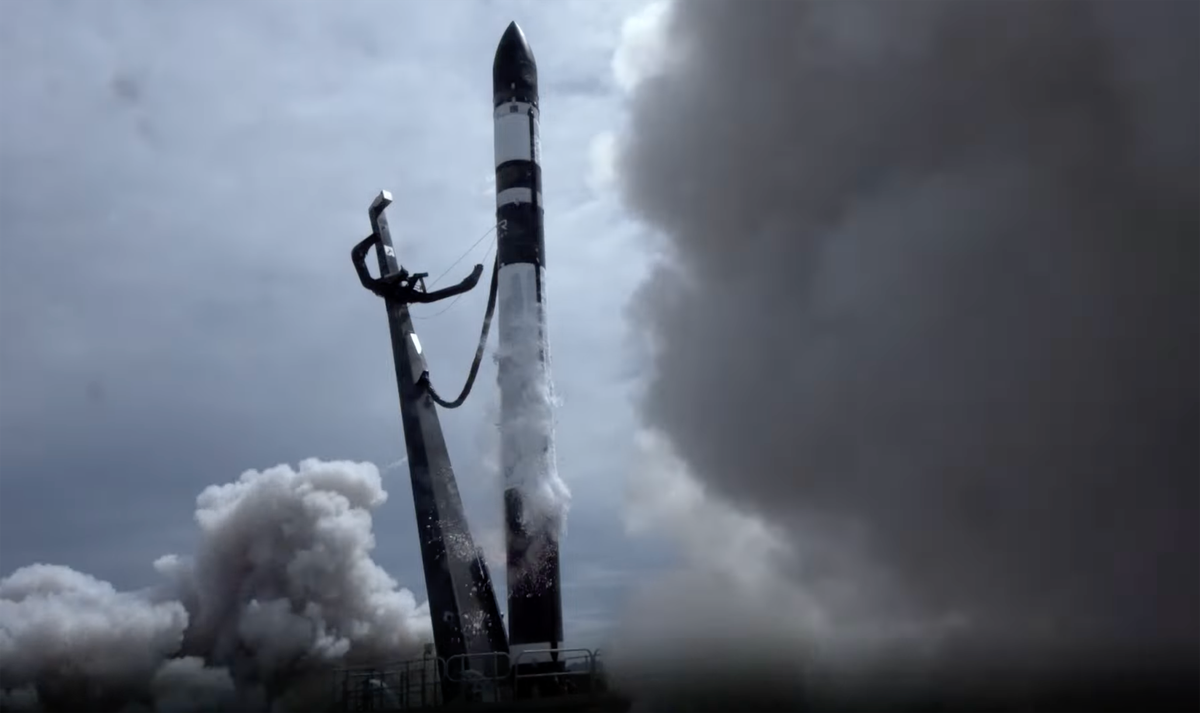
Tens of thousands of people watched as Rocket Lab delivered an intelligence satellite to orbit Tuesday afternoon, marking the company’s 60th Electron launch.
The dedicated mission, dubbed “Fasten Your Space Belt,” delivered the first high-resolution Gen-3 satellite for BlackSky’s mid-inclination, Earth-imaging constellation that will settle into a circular orbit 292 miles above the Earth’s surface. BlackSky provides real-time space-based geospatial intelligence.
“Electron is a trusted and reliable constellation builder for companies like BlackSky, allowing them to be in control of how, when, and where to deploy their constellation,” Rocket Lab founder and CEO Peter Beck said in a statement ahead of the launch.
After the mission, Beck posted on social media site X: “100% mission success!”
100% mission success!
— Peter Beck (@Peter_J_Beck) February 19, 2025
This was Rocket Lab’s ninth launch for BlackSky since 2019, “making Rocket Lab the most prolific launch provider for BlackSky’s constellation to date,” according to the company. BlackSky was among Rocket Lab’s earliest customers, with a satellite launched as part of the Long Beach company’s sixth mission to carry a payload.
Electron’s first flight on May 25, 2017 did not include a customer payload, but made history as the first orbital-class rocket to blast off from a private launch site, which is located in New Zealand.
“This launch represents a major inflection point for our global defense and intelligence customer base as BlackSky introduces low-latency, very high-resolution Gen-3 satellite to our dynamic, high-frequency monitoring constellation,” BlackSky CEO Brian O’Toole said in a statement. “As more Gen-3 satellites complete production, we expect a regular cadence of additional launches over the coming year.”
Tuesday’s mission featured a customized cone to better fit the BlackSky satellite, Rocket Lab spokesperson Sam Pieters said during a livestream of the launch.
Electron took off from the company’s Launch Complex 1 on the southern tip of the Māhia Peninsula on the east coast of New Zealand just after 3:15 p.m. Long Beach time. One minute and 15 seconds into the mission, Electron passed Max Q, which is the point of highest stress on the rocket.
After the rocket's second stage successfully reached space, the kick stage separated just before T-9:30. The craft then made a roughly 45-minute journey to the other side of the world at speeds upward of 16,777 mph before delivering the BlackSky satellite to the appropriate orbit 54 minutes and 30 seconds after lift off.
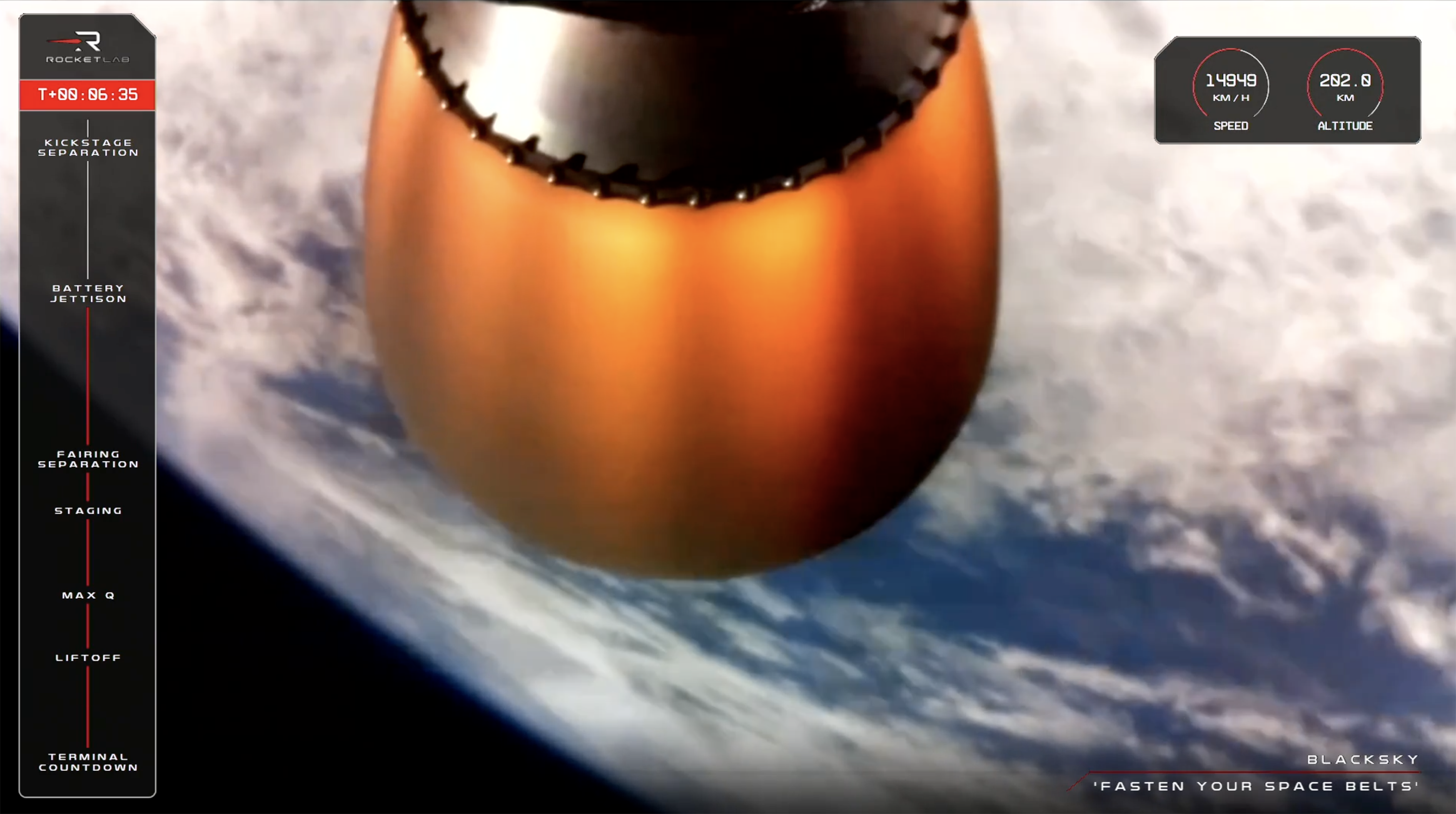
Tuesday’s successful delivery brings the total number of satellites delivered to orbit by Rocket lab to 210, according to the company.
“Fasten Your Space Belt” was Rocket Lab’s second mission of 2025. The first mission of the year blasted off from New Zealand on Feb. 9 and delivered five satellites to low-Earth orbit for French Internet-of-Things operator Kinéis.
Since Electron’s first mission in 2017, Rocket Lab has increased its launch cadence each year with the exception of 2021. The biggest jump was from 2023 to 2024, when the company went from 10 to 16 successful launches, respectively.
“So you already know that 2025 is gearing up to be another exciting year of even more Electron launches,” Pieters said.
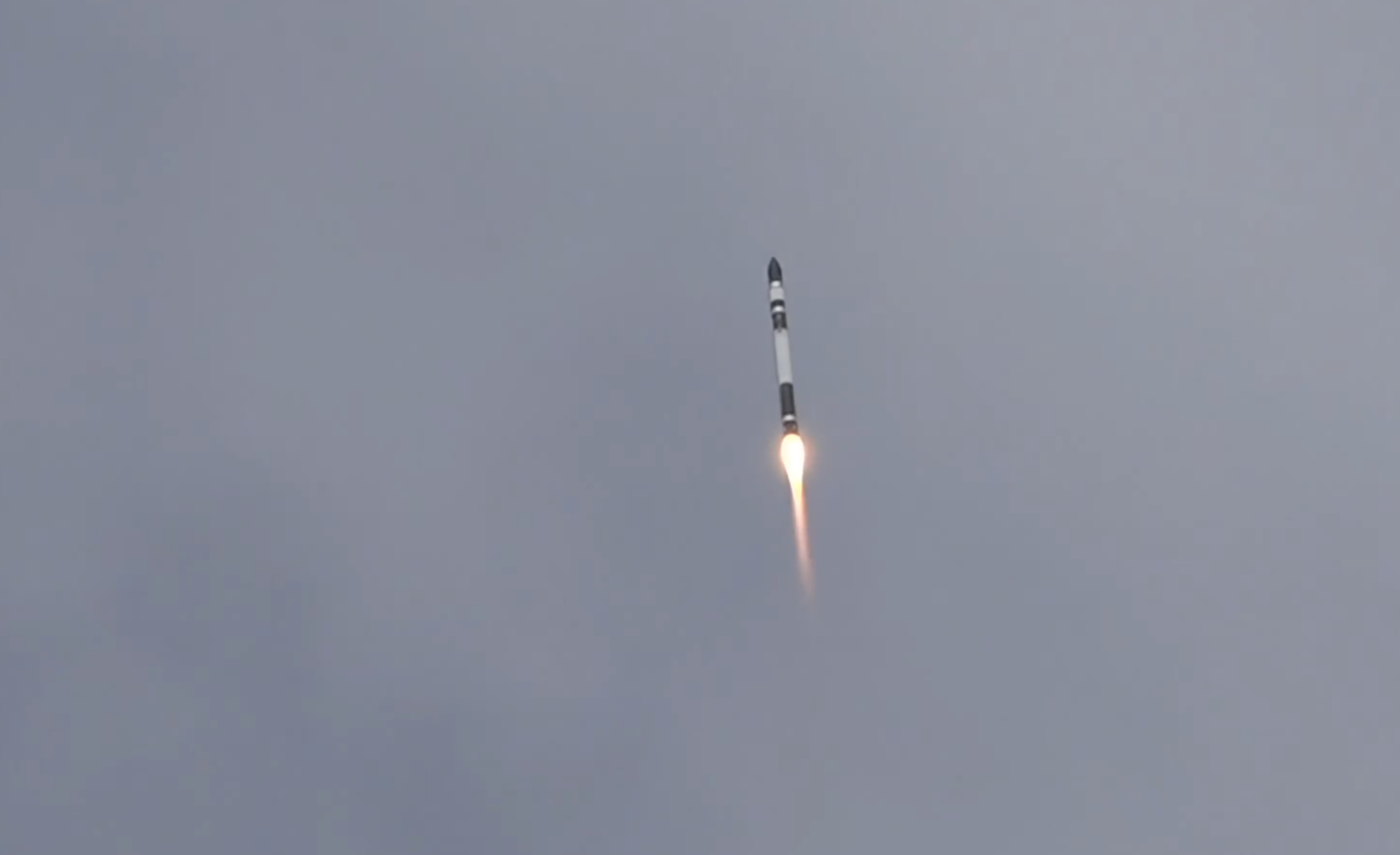
We need your support.
Subcribe to the Watchdog today.
The Long Beach Watchdog is owned by journalists, and paid for by readers like you. If independent, local reporting like the story you just read is important to you, support our work by becoming a subscriber.


